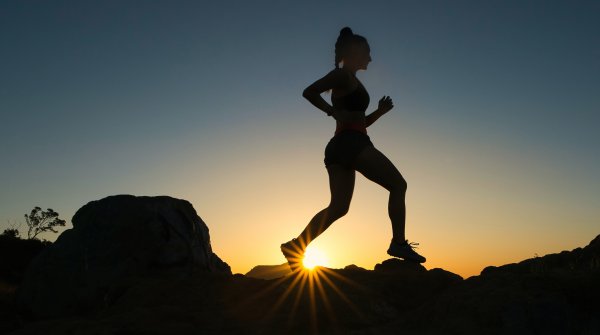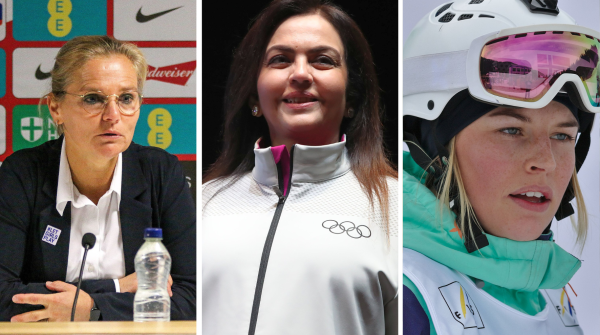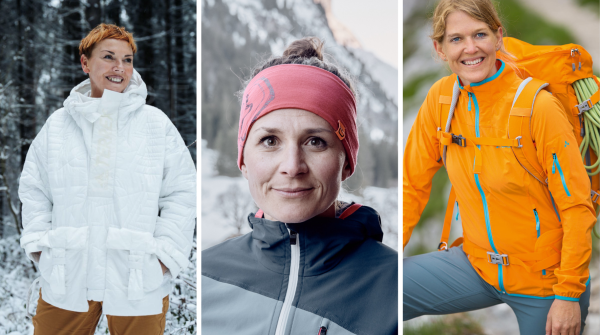Yusra Mardini was born into a family of swimmers in Syria: Her father was a swimming coach and former competitive swimmer, and her sister trained with her lane after lane. But war accompanied her throughout her childhood, and when an unexploded bomb hit the swimming hall, her parents decided to flee. They wanted to cross the sea to Europe - put by smugglers into a small, rickety boat with several leaks.
When the boat threatened to capsize, Yusra and her sister jumped into the sea, not knowing how far away the saving shore would be. They began to swim and dragged the boat behind them - for almost three hours until they reached Greece.
Via detours, Yusra Mardini and her family arrived in Berlin. Here she had only one goal: to swim again! The club Wasserfreunde Spandau was amazed at the trial training. When the IOC (International Olympic Committee) put together a team of refugee athletes for the 2016 Olympic Games in Rio, she was part of it.
Today, Yusra is a Good Will Ambassador for UNHCR. She is the youngest ambassador ever. Her Hollywood story was recently made into a film.
Francis Ngannou comes from Cameroon. He grew up in the poorest of circumstances, had little access to education and began working at the age of 10. Out of disgust for his father, a street fighter, he refused to join one of the local gangs as a teenager. Nevertheless, at the age of 22, he developed an interest in boxing and began training.
At the age of 26, he fled to Europe, where he spent the first two months in prison in Spain after entering illegally. From there he moved to Paris. He spent the first time homeless, but then met the professional MMA fighter Francis Carmont. The latter rekindled the love for boxing in him and convinced him to switch to MMA (Mixed Martial Arts). Through Carmont, Francis met his future coach. Fernand Lopez, also from Cameroon and a former MMA fighter, recognized the young man's potential and not only trained him for free, but also let him sleep in the gym.
Francis took advantage of this opportunity and became the first UFC heavyweight champion from Africa in 2021. Out of gratitude, he is now involved in helping children in his home country. The Francis Ngannou Foundation now runs the first MMA studio in Cameroon and is primarily aimed at children who would otherwise end up on the streets.
Simone Bile's success was not something she was born with: Her alcoholic and drug-addicted mother was unable to care for her and her siblings. Her grandparents eventually adopted her and, after discovering her talent, allowed her to concentrate fully on her sport. And it paid off, as Biles went on to a stellar career as a gymnast and is now arguably the most successful athlete of her generation, having won 25 world championship medals and seven Olympic medals.
But Biles is also a true role model away from the gym. She stands up as the voice of BIPOC and all women in sports, openly criticizing discrimination, sexism and violence in sports. In 2018, as part of the #metoo movement, she made public the sexual assaults of her team doctor, Larry Nassar, which affected over a hundred other female athletes. In 2021, she spoke to Congress about what happened, accusing legal authorities and gymnastics officials of looking the other way despite evidence.
And she continues to struggle with her mental health as well. In 2021, she dropped out of the Tokyo Olympics. She spoke openly about her challenges and ADHD, and encouraged competitive athletes to be mindful of themselves and their limits, which sparked a public debate.
Chloe Kim got off to an early start: At just 17, she won Olympic gold in snowboarding in 2018, making her the youngest ever winner in the halfpipe. Shortly after, she spoke publicly about her fears and the depression that made it impossible for her to perceive this victory as a positive feeling. After leaving the podium, she threw her gold medal into the dustbin.
For a long time, the Asian-American athlete had to suffer from racist discrimination, some of which came from fellow athletes and officials. After therapy, she decided to stop hiding her doubts and negative experiences. She became a loud voice for inclusion and diversity in sports, advocating for the issues of her generation outside of sports. To do so, she doesn't shy away from publicity or new avenues: to spread her message more broadly in society, she participated in "The Masked Singer" in America and campaigned for more representation of Asian-Americans.
Australian Kelly Cartwright was training for a promising career in netball at age 15 when she received a harrowing diagnosis: Bone cancer. It grew so quickly that doctors recommended amputation above the knee. After the arduous rehab process, Kelly quickly realized that she would not be able to play netball at her old level with the prosthesis. Instead of anger and sadness, she chose ambition. She turned to running and, with her father, built a track on her own doorstep to train on. She was so focused on being able to play sports again that she entered her very first competition after her surgery with her walking prosthesis - she didn't yet know that walking prostheses existed.
In 2007, Australia brought her into the young talent program for the 2012 Paralympics, but she already qualified for Beijing 2008, where she finished 6th in the 100 metre dash. In 2011, she followed that up with gold in the sprint and long jump at the IPC Athletics World Championships, even setting a world record. She broke that record herself at the London Paralympics in 2012, also taking silver in the 100 meters.
In 2009, she also became the first woman with an above-the-knee amputation to climb Mount Everest. Following her sporting successes, she took part in the Australian version of "Dancing with the Stars" to further raise awareness of the issue of amputation.
Mike Schultz was an up-and-coming snowmobile star who won national and international tournaments. But in 2008, he shattered his left leg in a serious accident on the track, requiring it to be amputated just above the knee. When he woke up after the emergency surgery, he asked directly if and when he could get back on the snowmobile.
He tried out various prostheses, but none were suitable for the unusual stresses of racing. Instead of giving up the sport, he took up his own tools and built his own prosthesis. He geared the mechanics entirely to the dynamic load, the fine motor movements and the power required for his sport. Success proved him right: just seven months after his amputation, he competed in the Supercross event at the Summer XGames with the homemade prosthesis and won silver.
He then founded BioDapt to make his sports prostheses available to other athletes with special requirements. The latest models can withstand dynamic loads up to 230 kg and cover snowboarding, skiing, cycling, off-road motocross, ATV, weight training, horseback riding and water sports. At the 2018 Paralympic Winter Games in Pyeongchang, 16 athletes from 11 countries wore prosthetics from BioDapt. And Mike himself won a gold and a silver medal in snowboarding.
Sifan Hassan is one of the surprise stars of 2023: The successful middle-distance runner from the Netherlands ran her first marathon in London this year - and won it outright. Yet her starting position was not promising. Her running training coincided with Ramadan, the Muslim month of fasting. Although she trained hard during the day, she only ate and drank after sunset.
And the marathon itself began anything but favourably for Sifan Hassan. Not only once did she have to take a break to loosen up and stretch her aching hip. Already after the first hour, she lost her running pace. Her competition was strong, including running against Olympic champion Peres Jepchirchir of Kenya and last year's marathon winner Yalemzerf Yehualaw (Ethiopia).
But kilometre by kilometre, she fought her way forward. When she started the last lap and saw the leading runners, the crowd went wild. Amid thunderous applause and cheers, Sifan was able to overtake her competitors and, after her three Olympic gold medals in Tokyo over 1,500, 5,000 and 10,000 meters, also won the marathon distance in London.
Cuban Ana Quirot was the dominant runner in the 400 and 800 meters in the late 1980s. Between 1987 and 1990, she remained consistently unbeaten in the 800 meters. In 1993, a kerosene stove exploded in her kitchen, seriously injuring her. Ana, heavily pregnant, suffered third-degree burns on nearly 40 percent of her body and struggled for her life in the hospital for a long time. During this time, her daughter was born prematurely and died after barely a week.
Seven major operations to transplant the skin and treat the wounds later, Ana fought her way back into life and also restarted her athletic career. After two years of healing, she took part in the 1995 World Championships in Gothenburg and confidently won her supreme discipline again in the 800 meters. Olympic silver followed in 1996 and another world championship title in 1997.
Aries Merritt was one of the top hurdlers who not only won the Olympics in 2012 but also set a world record in the 110 metre hurdles. But then his stellar career suddenly came to an end. The U.S. sprinter could no longer call up his top performances, which was incomprehensible to him and the rest of the world - until a test diagnosed a rare gene disease. It was attacking his kidney and had already damaged his bone marrow. Doctors had little hope that he could ever return to his former athletic successes.
But with the certainty of a treatment option, ambition returned. Aries Merrit persevered and resumed his usual training in 2014. With success, because in 2015 he won bronze at the World Championships in Beijing. He competed under difficult conditions: Immediately after the tournament, he went back to the hospital, where he received a kidney transplant donated by his sister.
- Awards
- Mountain sports
- Bike
- Fitness
- Health
- ISPO Munich
- Running
- Brands
- Sustainability
- Olympia
- OutDoor
- Promotion
- Sports Business
- Textrends
- Triathlon
- Water sports
- Winter sports
- eSports
- SportsTech
- OutDoor by ISPO
- Heroes
- Transformation
- Sport Fashion
- Urban Culture
- Challenges of a CEO
- Trade fairs
- Sports
- Find the Balance
- Product reviews
- Newsletter Exclusive Area
- Magazine





